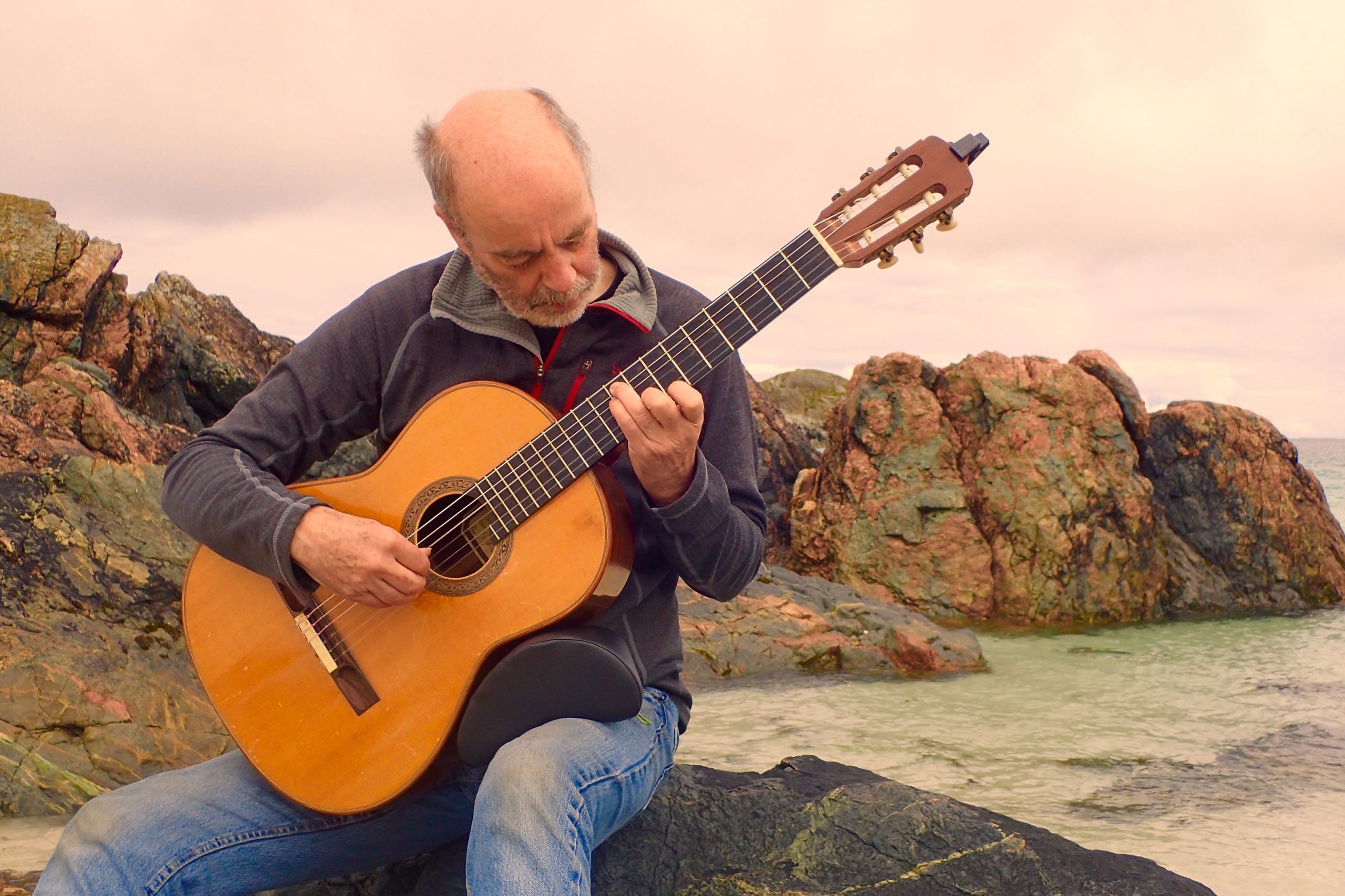
Hi Nigel. You’ve had a long journey balancing music with your career. Could you take us through that?
I trained as a medical doctor but have always had a musical career of sorts; it has often felt like a juggling act, or plate spinning. I’ve played the classical guitar since my teenage years. During the 1990s I performed with other guitarists, and then in a ‘band’ with a vocalist, a flute player and a violinist. We received good reviews and made some waves in the classical guitar world, but the economics of it wasn’t viable.
Financial pressures, and the lack of an obvious way forward, meant I went back to full time medical work—and for almost 20 years I played acoustic guitar in various worship bands in churches in London and Birmingham. I also started to write songs, and performed them locally. Then, in 2013, reorganisation within the NHS meant I was offered retirement and I couldn’t resist.
In 2014 I picked up the classical guitar for the first time in 17 years. My playing was awful… at first. Since then, I’ve performed a few concerts every year with classical guitar buddies from around the UK. In 2019 I decided to promote myself as a soloist—then Covid happened!
Through our Patrons scheme, we are supporting your new musical project. Can you tell us a bit about it?
Just before Lockdown, I became involved with Ash and Anji Barker’s Newbigin House project in Winson Green. This is a church-driven urban regeneration project, based on innovative principles which I admire greatly. In March 2020 (oh dear!) we were given a church building, and despite the Pandemic the project has flourished—partly because Ash and Anji are amazing people—but also through the resilience of local Winson Green people, who are taking ownership for regeneration projects in their community.
One of those projects was started by my friend Sarah, with whom I’d run a choir called Rock the Yurt in the autumn of 2019. Sarah’s new project was for a band with Mindfulness at its core—appropriately called ‘MindFunk’. The band has a mutually supportive ethos with a ‘collective’ approach to writing, and we’ve received a good response so far. Everyone involved in the band would have had some experience of mental health services in the past, or present.
The next stage is to record these songs and complete others. We have been fortunate to have been given a lot of recording and PA equipment and space at Lodge Road Community Church to convert into a recording studio. With the money becoming available from Sputnik and others we will able to purchase recording equipment to plug any gaps (this is currently being reviewed) and consideration is also being given to external technical and/or artistic support. This may be worth investing money in, though this would be decided in keeping with the urban regeneration model being applied and any support commissioned would be used to develop the skills of locally based individuals as an investment in the future.
How do you think that art generally (and music specifically) can help those of us who battle with mental health problems?
Time and again individuals in MindFunk express their appreciation of the time spent rehearsing and collaborating in the band and the beneficial effect this has on their mental well-being, something I also echo.
It is especially true if we have a very creative songwriting session, but I have also seen and experienced it when we quickly play through and learn a cover version. We all struggle to keep our emotions centred on a positive outlook for life, and involvement with music is very healing. I’ve also seen how MindFunk spontaneously can ‘give this away’ to others. One incident comes to mind: we rehearse in a building where there is also a community cafe running, and MindFunk can be heard in the next room. A few of the regulars who were in the cafe opened the glass doors and we did (I think) ‘Knockin’ on Heaven’s door’, then someone started ‘Amazing Grace’. MindFunk picked it up and the atmosphere in the place became electric. MindFunk is not the church worship band, but what happened then was very worshipful and happened in a very public space. It was magical, and I have no doubt very healing for those involved.
Christians are often keen to serve their communities as an expression of Jesus’ command to love our neighbours. However, this service is usually seen in practical terms. How do you think that art can express God’s love for our communities and do you have any advice on how you think artists or churches can serve their communities more effectively through the arts?
I passionately believe in art for art’s sake; our God is by nature creative, and since we are created in his image, we are creative beings. This creativity is in all of us, but this world seems to do everything it can to squeeze it out of us. I believe that is because our creativity is a powerful antidote to the destructive forces so often expressed in our communities.
My model of creativity is that it is involved in the engine room which powers the practical outworking of God’s purposes; not an add-on when we can afford it, but part of the ‘currency’ which invests in the ‘Divine economy’. An economy which values and invests in the arts is likely to be an economy which will grow in a beneficial way, a less destructive way; perhaps even a way which respects people and the environments in which they live. Effective practical projects are more likely if they reflect and arise from a more creative culture.
